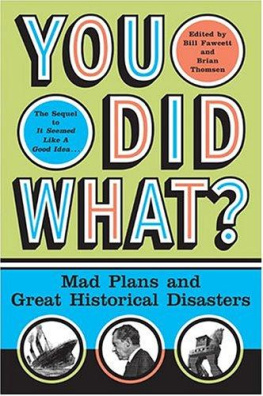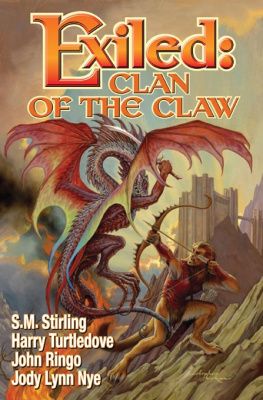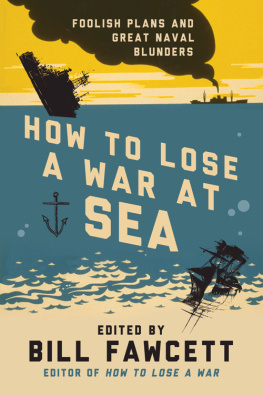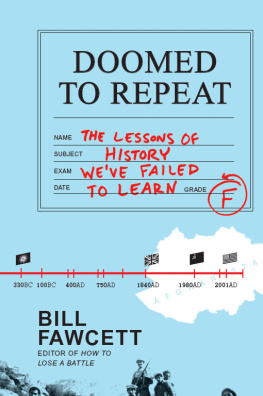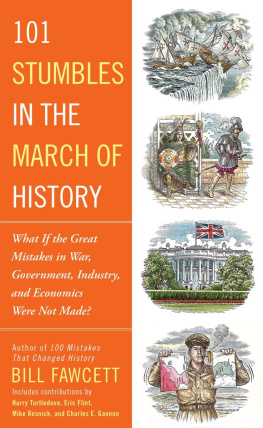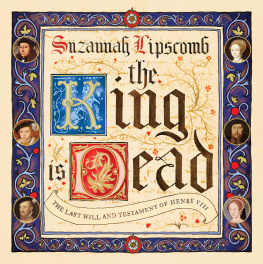Bill Fawcett - You Did What?: Mad Plans and Great Historical Disasters
Here you can read online Bill Fawcett - You Did What?: Mad Plans and Great Historical Disasters full text of the book (entire story) in english for free. Download pdf and epub, get meaning, cover and reviews about this ebook. City: New York, year: 2004, publisher: PerfectBound;HarperCollins, genre: History. Description of the work, (preface) as well as reviews are available. Best literature library LitArk.com created for fans of good reading and offers a wide selection of genres:
Romance novel
Science fiction
Adventure
Detective
Science
History
Home and family
Prose
Art
Politics
Computer
Non-fiction
Religion
Business
Children
Humor
Choose a favorite category and find really read worthwhile books. Enjoy immersion in the world of imagination, feel the emotions of the characters or learn something new for yourself, make an fascinating discovery.
- Book:You Did What?: Mad Plans and Great Historical Disasters
- Author:
- Publisher:PerfectBound;HarperCollins
- Genre:
- Year:2004
- City:New York
- Rating:3 / 5
- Favourites:Add to favourites
- Your mark:
You Did What?: Mad Plans and Great Historical Disasters: summary, description and annotation
We offer to read an annotation, description, summary or preface (depends on what the author of the book "You Did What?: Mad Plans and Great Historical Disasters" wrote himself). If you haven't found the necessary information about the book — write in the comments, we will try to find it.
Okay, its not exactly news that Napoleon miscalculated in trying to invade Russia in the dead of winter or that David Caruso hurt his career by leaving NYPD Blue after a mere season and a half. And the authors, publishing veterans, are a bit blithe in describing the battle between Henry VIII and Thomas More as merely a bad personnel decision. (Similarly, poor Anne of Cleves might have felt differently about their saying Henry cant be faulted for their failed marriage.) Complex historical episodes, such as the rise and fall of Robespierre, are reduced to a quick sketch of blunder, and major historical goof-ups are mixed in with more trivial pop-culture tales of woe, such as Garth Brookss worst-selling album and other actors who, like Caruso, bailed out of a TV ship that, far from sinking, was moving full steam ahead. Theres an odd mix here, definitely history very-lite, but perhaps readers who savor schadenfreude will find some satisfaction in it.
Copyright Reed Business Information, a division of Reed Elsevier Inc. All rights reserved.
History has never been more fun than it is in this fact-filled compendium of historical fiascoes and embarrassingly bad ideas.
Throughout history, the rich and powerful, and even just the dim-witted, have made horrifically bad decisions that have had resounding effects on our world. From kings to corporate leaders, from captains to presidents, no one is immune to bad decisions and their lasting legacy. The fiascoes that litter our history are innumerable ... and fascinating in their foolishness. This witty collection of historical mayhem chronicles unwise decisions from ancient Greece to modern-day Hollywood and everything in between. Learn such lessons as:
- Never trust Greeks bearing gifts of large wooden horses.
- Avoid building elementary schools on toxic waste dumps, even those with sweet monikers like Love Canal.
- Rabbits multiply like rabbits Down Under.
- Even if you use brightly colored paint on the boats, its quite easy to misplace an entire countrys navy.
With more than forty-five chapters of mind-boggling flubs and follies, fans of history, trivia, and those who just want a good laugh will adore this intriguing and fun read.
Bill Fawcett: author's other books
Who wrote You Did What?: Mad Plans and Great Historical Disasters? Find out the surname, the name of the author of the book and a list of all author's works by series.

